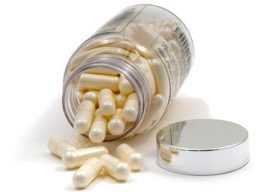
Reduce your risk of getting sick
I must start by confessing something: I’m a doctor who gets stressed about germs. If you’d ever had a patient with the flu cough in your face, felt their saliva land in your eye and then ended up in bed for a week, you’d be a little paranoid, too. (Not only that, most doctors don’t get sick pay.)
After more than 10 years of medical practice and being exposed to everything from the swine flu to tuberculosis, I rely on multiple strategies to minimize the probability that I’ll get sick. Maximum protection comes from a combination of limiting your exposure to viruses and fortifying your immune system. Here are my top six tips that can help you, too:

1. Wash your hands and keep them away from your face
On the first day of residency training, we each got a handbook on how to survive it. The one piece of advice I remember was that we were to wash our hands frequently and avoid touching our mouths, noses and eyes; these vulnerable surfaces are where most germ transmission happens. Washing with plain soap is best-personally, I’m not a fan of antibacterial hand washes because they strip protective bacteria from your hands and may even ?irritate your skin.

2. Take a probiotic every day
I have taken probiotics daily for years. In addition to improving digestion and intestinal health, they boost your immunity and can protect you from colds and flu. A 2009 study published in the journal Pediatrics reported that children who took a probiotic daily for six months decreased their incidence of viral infections, shortened the duration of infections they got and decreased the need for antibiotic prescriptions. Ask your pharmacist or family doctor for a recommendation if you aren’t sure which one is right for you. And follow the recommended dosage on the label.

3. Exercise regularly
Even if you have never exercised in your life, there’s still hope: A study published in 2006 in the American Journal of Medicine took two groups of “overweight and obese, sedentary, post-menopausal women” and had one group exercise moderately for 45 minutes a day, five days a week, for a year; the other group didn’t exercise. By the last three months of the study, the women who didn’t exercise were found to have had three times as many colds as those who were active. No matter what your age or weight, exercise pays off.

4. Get a flu shot
There’s so much debate over the safety of the flu shot, but I really think it’s a wise choice for anyone who has contact with a lot of people. The year I got taken down by the eyeful of flu-laden saliva was the first year since med school that I had delayed getting my shot. I’ve never missed one since.

5. Limit sugar
Eating sugary or refined flour-based foods produces bursts of high blood sugar in your body, and that impairs your immune system. Eat fibre-rich whole foods and limit high-sugar snacks and drinks to keep your defences strong.

6. Don’t smoke
The title of a study published in a 2005 issue of the Cleveland Clinic Journal of Medicine makes this point elegantly: “Respiratory tract infections: Another reason not to smoke.” Smoking depresses your immune system, makes the tissues in your mouth and lungs more vulnerable to infection, and is associated with more sick days lost from work. It’s obvious advice, but it’s worth repeating nonetheless: Talk to your doctor for advice on how to quit.
Related:
• 5 myths and truths about cold and flu
• 7 ways to prevent the flu
• 5 flu-fighting foods
